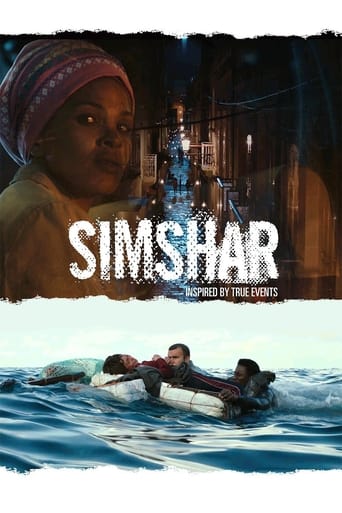magilroy
Simshar, directed by Rebecca Cremora, as the official submission to the 87th Academy Awards from Malta. The movie takes place in a fishing village that is controlled by the European Union in Malta. The fisherman of Malta face many challenges when fishing for their coast is over fished and they have to go farther out to catch any fish. Not only is there a lack of fish, but a license is required to be able to fish, which is the main problem the owner of the Simshar faces when trying to fish. Mixed in with the fisherman in this movie is people immigrating from Liberia by boat. I was very intrigued while watching the movie because it was full intense cinematic moments including the struggle to survive that our main characters face after their boat blows up in the middle of the ocean. I think this movie is a must see as it shows a different global perspective that I have not seen in any American films. It enlightened me to one of the reasons why a boat owner may not rescue a person drifting in the sea. I gave this film a 7/10 because it was a joy to watch and taught me a few things.
Nihil
In my opinion Simshar was a very good film. At first it seemed like the film was a little Americanized but it was proved wrong at the end. The film seemed a little Americanized at first because the little boy was going to work with his dad for a couple weeks on the boat. One thing that I did not like about this film was the boat catching on fire even though it was a key part of this film. I did not like this part because three people die from this one action or act. I do not even know how the fire started it seemed as if the boat was off to me but i guess it was not because it could not catch on fire if the boat was off. The fire was probably caused by a electrical problem. I think I saw them grab a fire extinguisher. Why did that not work? Was this realistic? Would they have been able to get the fire to stop if this was reel life? I believe so, I know the film was based on a true story but the fire extinguisher not being able to put the fire out actually makes no sense. Then they tried to get salt water from the ocean to put it out and that does not work either which makes no sense to me. Also if the soldier did not stop or delay the other fishermen search for Simshar then I believe they would have found the dad and son easier and the son would have got to live. Why does the soldier end up getting in trouble for letting the other fishermen look for him? they ended up saving one of their lives.
Pablo
This was a very nice film for me to watch, surprisingly. Since I've never really heard anything ever about Malta, it was cool and new to see a film where it took place in. I also like how it wasn't a touristy vacation movie, it was a serious film that was very similar to a documentary. It gave me a very on depth view of what Malta was like and how the country is doing. Some things I liked about the movie were the camera angles. I felt like the directors really went the extra mile in that aspect. I really liked how when the boat exploded, the camera was underwater and you saw the explosion from underneath the surface, and then the dad dove in the water. I also liked the scene where the camera was facing the junk raft and the survivors from underwater as the turtle swam by. Another cool angle was the scene where it was raining and the camera was facing down at Theo and his dad as they were trying to catch the water. There were a lot of sad scenes also though, something I'm not really a fan of. For example, the scene where Musa died, the scene where Theo and his dad were trying to catch the rain, and the scene where they find Simon, but he can't find Theo, and then the camera goes to the underwater shot of his body sinking.
Mario g
The ONLY persons who are gonna watch this movie is the family and friends of the producers, actors and the cast. The scenes that follow cut between the refugee boat, where Alex (Mark Mifsud), the grumpy Red Cross doctor, has been forced to stay aboard to care for a young pregnant woman, and the fishermen, who are forced to venture further and further from home in their search for the elusive tuna.A couple of plot twists are predictable but so is life at times, and you can just about accept the speed with which Alex comes round to the refugees' point of view, strongly influenced by his growing attraction to their feisty interpreter. As for the fishermen's story, the sense of inevitability which shadows their voyage simply underlines its tragedy.The film was Malta's entry in the Best Foreign Language Film category at this year's Academy Awards – the first that Malta has ever submitted to the Oscars. And you can see why it felt moved to do so.



